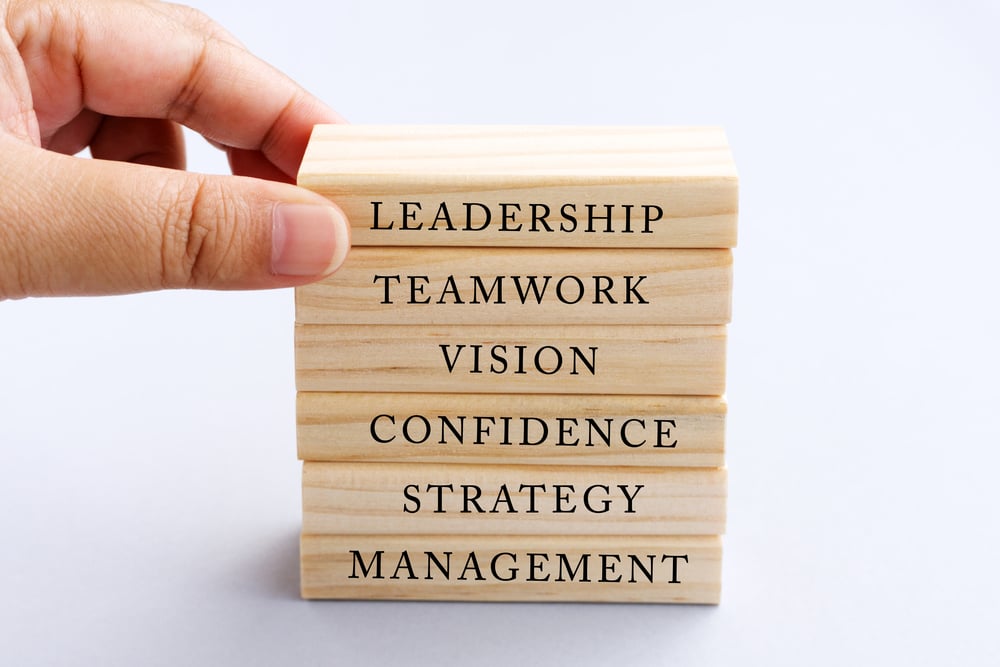The Roadmap to Senior Management: 10 Key Qualities to Master

- What are the Key Qualities and Skills Required to Become a Part of Senior Management?
- How Can Mid-Level Professionals Stand Out and Gain Visibility Within Their Organizations?
- What Strategies Can Professionals Adopt to Build a Strong Professional Network for Career Growth?
- How Important is Continuous Professional Development in Progressing Toward Senior Management Roles?
- What are the Potential Challenges and Roadblocks One May Face While Trying to Move Into Senior Management Positions?
C-suite roles are like the crown jewels of the business realm—the top positions that many dream of holding. However, transitioning from a mid-level role to the senior management level—where decision-makers guide the corporate ship—entails more than just work experience. It’s like transforming into a better, more improved version of yourself. So, how can a middle-management professional pave the path to a senior management role? In this article, we delve into the key skills and tips to help you join the coveted ranks of senior management.
In this blog, we cover the following:
- What are the Key Qualities and Skills Required to Become a Part of Senior Management?
- How Can Mid-Level Professionals Stand Out and Gain Visibility Within Their Organizations?
- What Strategies Can Professionals Adopt to Build a Strong Professional Network for Career Growth?
- How Important is Continuous Professional Development in Progressing Toward Senior Management Roles?
- What are the Potential Challenges and Roadblocks One May Face While Trying to Move Into Senior Management Positions?
What are the Key Qualities and Skills Required to Become a Part of Senior Management?
Being a part of top management demands a robust skill set. Here are the top 10 qualities and skills that you need to thrive in senior management:
 1. Leadership Skills
1. Leadership Skills
Leadership skills are the cornerstone for advancing into a C-suite position. Organizations need leaders who are not only capable of inspiring teams but also leading them toward achieving strategic goals. Consequently, enhancing your leadership skills is highly critical if you want to lead efficiently.
2. Strong Verbal and Written Communication
Knowing how to clearly and effectively express yourself verbally and in writing is one of the most vital professional skills. This is particularly essential in the context of senior management. Moreover, a C-suite professional should know how to effectively influence and persuade others, understand their needs, and adeptly resolve issues. They should also possess efficient written skills for conveying complex ideas clearly and maintaining the organization’s professional image.
3. Decision-Making
Members of an executive team have to constantly make decisions that can significantly impact both employees and the organization as a whole. Thus, a senior management professional should learn how to make well-informed decisions in complex and dynamic situations.
4. Strategic Thinking
Strategic thinking enables senior executives to navigate the complexities of the modern business landscape. Therefore, developing strategic thinking skills can help leaders anticipate potential problems, identify trends, and lead them toward sustained success.
5. Emotional Intelligence
Emotional intelligence encompasses understanding and skillfully managing both one’s emotions and the emotions of others. By nurturing empathy, leaders can establish profound connections with their teams, cultivate trust, and foster a conducive and positive work environment.
6. Delegation
Delegation is essential for the success of leaders and their team members. A senior manager must possess the skill to harness the strengths of their team, effectively assigning tasks to optimize performance and accomplish specific objectives.
7. Change Management
Organizations are constantly evolving. Professionals in a senior management role should have the skills to adeptly navigate and guide the organization through such periods of transition and transformation, ensuring that the organization remains competitive and aligned with its goals.
8. Time Management
Effective time management is a critical asset for senior management, allowing them to strike a balance between a wide range of responsibilities while also ensuring quality or productivity.
9. Resilience and Stress Management
Given the high-pressure nature of senior management roles, cultivating robust resilience and stress management skills is highly important. Additionally, these qualities can enable professionals to navigate challenges, maintain performance under demanding circumstances, and also make effective decisions even in the face of adversity.
10. Continuous Learning and Development
Staying updated with the latest trends and developments is critical for excelling in senior management roles. Professionals who consistently upskill and mold themselves remain prepared for any challenges and play a pivotal role in guiding their teams to success in dynamic environments.
Cybersecurity Courses
How Can Mid-Level Professionals Stand Out and Gain Visibility Within Their Organizations?
Here are 10 tips to help you stand out and gain visibility within your organization:
 1. Show Initiative
1. Show Initiative
Take proactive steps to contribute beyond your job description, showcasing your commitment to the organization’s success.
2. Exhibit Leadership Qualities
Display leadership traits by taking ownership, inspiring your colleagues, and leading by example. Additionally, be part of the solution and learn to provide effective strategic insights.
3. Participate Actively in Meetings
Engage in team discussions, share insights, and contribute valuable ideas during meetings.
4. Expand Your Network
Establish connections both within and outside your department, fostering relationships that can bring new opportunities.
5. Connect With Decision-Makers
Establish robust connections with key leaders in the organization. This enhances visibility and offers valuable learning opportunities as mid-tier professionals engage with their more experienced colleagues at higher levels.
6. Embrace Collaboration
Collaborate with colleagues across different functions and departments. Mid-level professionals who actively collaborate position themselves as team players and enhance their visibility as valuable contributors to the organization’s overall success.
7. Excel in the Current Role
Strive for excellence in your responsibilities. Consistently delivering high-quality work that surpasses expectations in the current role will set professionals apart and demonstrate their competence and unwavering dedication.
8. Leverage Strengths
Identify strengths and weaknesses. Look for opportunities to leverage your strengths for the benefit of the team and organization while also addressing and developing strategies to mitigate any weaknesses.
9. Seek Feedback
Constructive feedback can be highly valuable for mid-level professionals. Request feedback from supervisors and colleagues to refine skills and also demonstrate a commitment to growth.
10. Upskill
Lastly, invest in professional development by learning new skills, staying updated with industry trends, and adapting to changes. This proactive approach not only facilitates personal growth but can also help one stand out.
ALSO READ: What is Participative Leadership? Why is It Necessary Today?
What Strategies Can Professionals Adopt to Build a Strong Professional Network for Career Growth?
Now that we’ve covered the top skills and tips for a senior management role let’s also delve into how to build a strong professional network:
1. Identify Goals
Start by defining career goals and what you aim to achieve through networking. Understanding professional objectives will help target the right connections and opportunities.
2. Leverage Online Platforms
Utilize professional networking platforms such as LinkedIn to network and connect with colleagues, peers, and industry professionals. Engage in discussions, share insights, and build a digital presence that reflects your senior management qualities.
3. Attend Events and Conferences
Participate in industry events, conferences, seminars, and workshops. These gatherings also provide valuable opportunities to meet professionals and leaders from diverse backgrounds to exchange ideas and learn.
4. Volunteer
Volunteer to be part of projects or initiatives within your field. Furthermore, these projects can provide excellent opportunities to meet and collaborate with other professionals in the same space.
5. Seek Out Mentorship
Identify experienced leaders in your field as potential mentors. A great mentor can not only offer guidance and expand one’s network, but they also make a significant impact on your life and career.
How Important is Continuous Professional Development in Progressing Toward Senior Management Roles?
Continuous Professional Development (CPD) is incredibly important for progressing into senior management roles. It encompasses both formal and informal learning activities, including online courses, workshops, and conferences. Moreover, aspiring senior managers can gain significantly from CPD, enabling them to enhance their expertise, improve decision-making, and stay updated on the latest industry advancements. Furthermore, CPD showcases dedication to growth beyond skill enhancement, bolstering eligibility for senior positions. Hence, in the competitive arena of senior management, professionals committed to continual improvement are better positioned to navigate complexities, drive innovation, and ensure organizational success.
ALSO READ: Learn Why Ethical Leadership is Essential for Business Growth
What are the Potential Challenges and Roadblocks One May Face While Trying to Move Into Senior Management Positions?
Moving upward into senior management positions can be a rewarding journey. However, it is not without its challenges and roadblocks. Here are some potential challenges that one might encounter while scaling the corporate ladder:
1. Skill Gap
Transitioning to senior management requires a broader skill set, including strategic thinking, communication, and leadership. However, please remember not to rush; developing these skills might take time and effort.
2. Burnout
Leadership team roles often involve making crucial decisions under pressure, which can lead to stress and burnout.
3. Poor Time Management
Senior executives must be able to balance strategic tasks with day-to-day operations while also leading others. This requires effective time management skills.
4. Responsibilities
Senior management roles entail greater responsibility and decision-making. Juggling these new responsibilities while also ensuring effective team management can be challenging.
5. Industry Changes
Industries are in a constant state of evolution and growth. However, adapting to this change within the organizations can often trigger resistance, which needs to be efficiently handled by the top management.
ALSO READ: Leveraging the Top 10 Benefits of Leadership Development Programs
To conclude, achieving a senior management role in India calls for a blend of skills, hard work, and a commitment to continuous learning. Furthermore, with dedication and the right skills, it is possible to pave your way to that coveted C-suite position. If you’re looking for a great skill booster, consider exploring the leadership courses offered by Emeritus.
By Krati Joshi
Write to us at content@emeritus.org




































